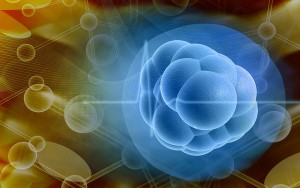Gene therapy ‘causes breast cancer stem cells to self-destruct’
 Washington, Sept 13 : Researchers at The University of Texas M. D. Anderson Cancer Center have found that gene therapy if delivered directly to a particular type of breast cancer cell causes the cell to self-destruct, thereby lowering recurrence risk and boosting the effectiveness of some types of chemotherapy.
Washington, Sept 13 : Researchers at The University of Texas M. D. Anderson Cancer Center have found that gene therapy if delivered directly to a particular type of breast cancer cell causes the cell to self-destruct, thereby lowering recurrence risk and boosting the effectiveness of some types of chemotherapy.
In cellular and mouse studies, senior author Mien-Chie Hung and his colleagues found that the gene mutation BikDD significantly reduced treatment-resistant breast-cancer initiating cells (BCICs), also known as breast cancer stem cells, by blocking the activity of three proteins in the Bcl-2 family.
The genetic approach increased the benefits of lapatinib, one of the most common chemotherapy drugs for breast cancer.
"There are no effective methods to target BCICs, and they're urgently needed, especially for relapsed breast cancer patients," said Hung, Ph. D., vice president for basic research, professor and chair of MD Anderson's Department of Molecular and Cellular Oncology.
"This research suggests a potential therapeutic approach to breast cancer stem cells that will minimize recurrence and drug resistance," he added.
Hung said that breast cancer stem cells, often resistant to chemotherapy and radiotherapy, are a major obstacle for breast cancer treatment.
If any of these cells remain after treatment, a new tumor often forms.
Although lapatinib can stabilize the level of these cells, no drugs are available to reduce them.
This study shows that Bcl-2 proteins help breast cancer stem cells survive, causing resistance to treatment and likelihood of recurrence.
However, using VISA, short for versatile expression vector, which was developed at M. D. Anderson, to deliver Bik mutant gene called BikDD can block the three key Bcl-2 proteins, eliminating the stem cells.
The study is published in the September 13 edition of Cancer Cell. (ANI)